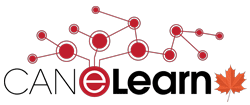Developing a Practitioner-driven
List of K-12 Research Priorities

The Problem
The gap between educational research and classroom practice has long been a concern in the field of education. As a researcher in the field, I have often written that the practice of K-12 e-learning outpaces the availability of useful research. One reason often given is the reality that far too often the world of educational research and the world of teaching (both classroom and online) often operate in separate spheres, with limited collaboration or communication between researchers and practitioners. Within the field of K-12 e-learning the last attempt to address this issue was the US-focused International Association of K-12 Online Learning’s Research Agenda.
The Request
To address this problem, the Digital Learning Collaborative is inviting teachers and leaders to help shape the next wave of research in K-12 e-learning. This survey aims to gather insights on what research would be most valuable for your online and hybrid programs. Your feedback will directly guide researchers in producing actionable data that supports your efforts and proves the effectiveness of your practices for students. Finally, the data collected can be parsed by country, which will allow the researchers to work with CANeLearn to create a Canadian-specific agenda (in addition to the more generalized version).
The Survey
https://gmucehd.az1.qualtrics.com/jfe/form/SV_byMD2qLXEPrEGxM
Feel free to share this survey with others involved in distance learning in the primary and secondary environment. If you have any questions, feel free to contact us at mkbarbour@gmail.com
Thank you in advance for completing this survey.
Michael Barbour, Jered Borup, Kristen DeBruler
——————————-
K-12 eLearning Program Survey: We Need Your Voice!
Click here to update/add your program
CANeLearn Partner Events: Check them out!
February 24-26, 2025 — Atlanta, GA
Register here
The BOLTT Conference provides opportunities to learn, share, and network around promising practices, including:
Innovative practices in online course development, delivery, assessment, communication, and student tracking and reporting in an eLearning, hybrid learning, or blended learning environment for elementary, secondary, or adult learners, or special programs;
Impactful tools to enhance digital course instruction or assessment; and
Unique online learning programs, projects, and initiatives.



